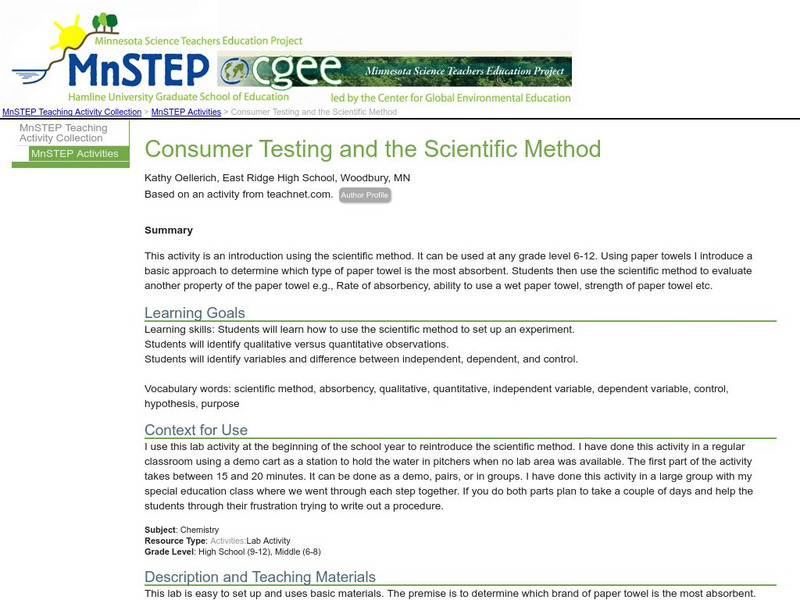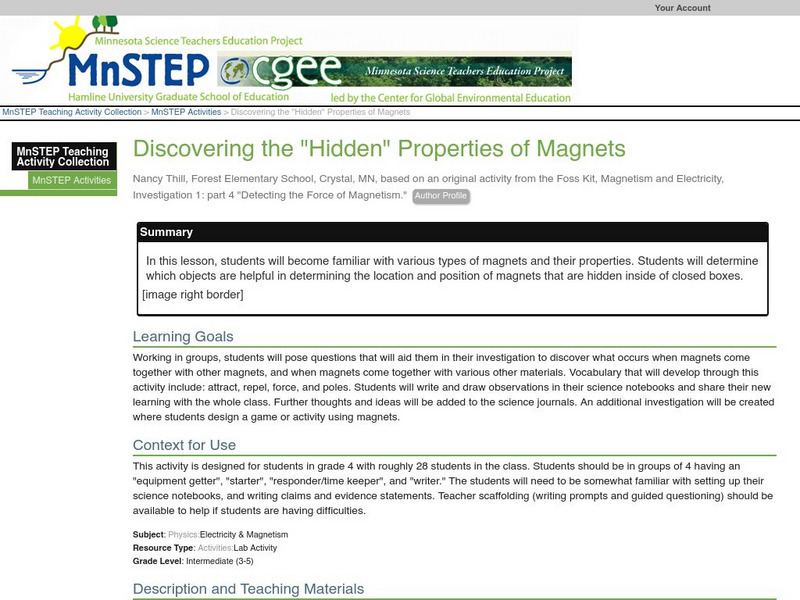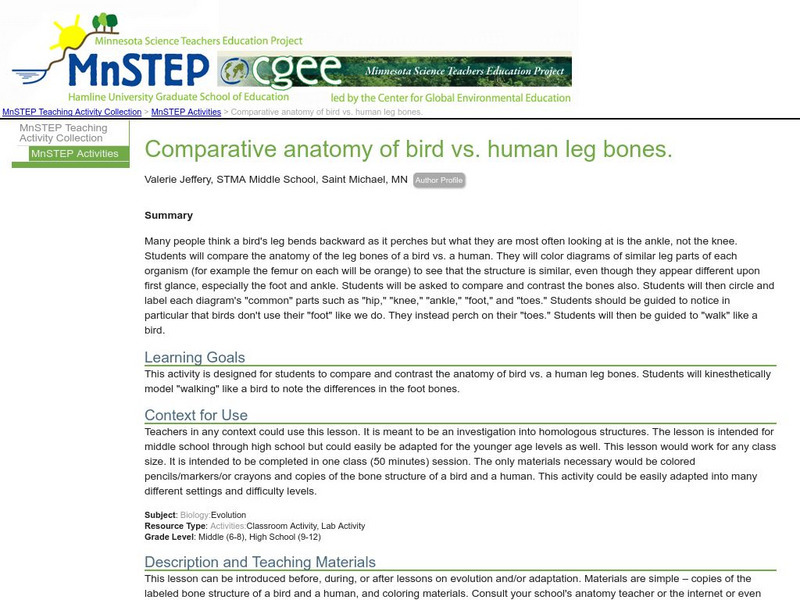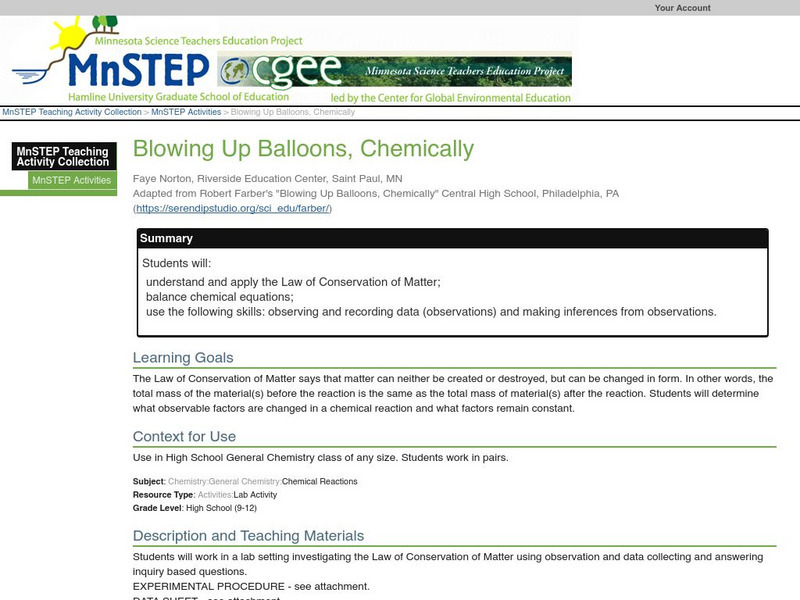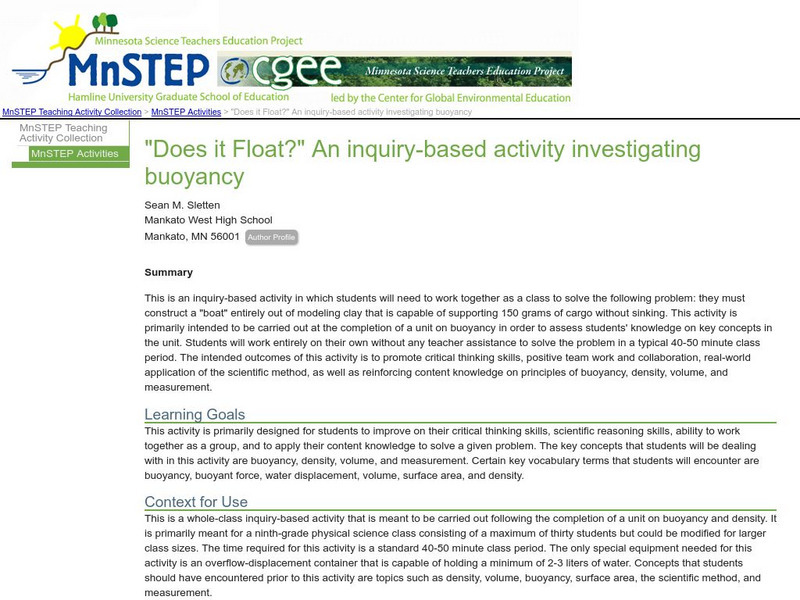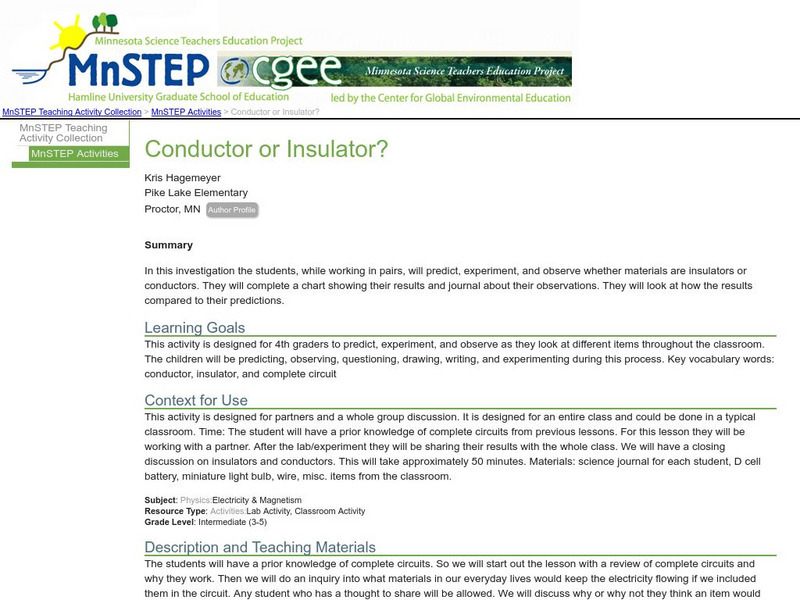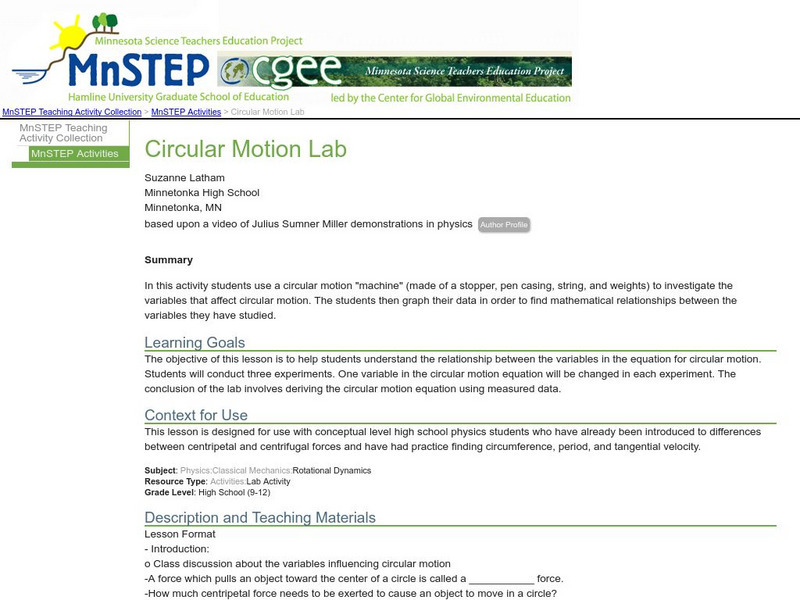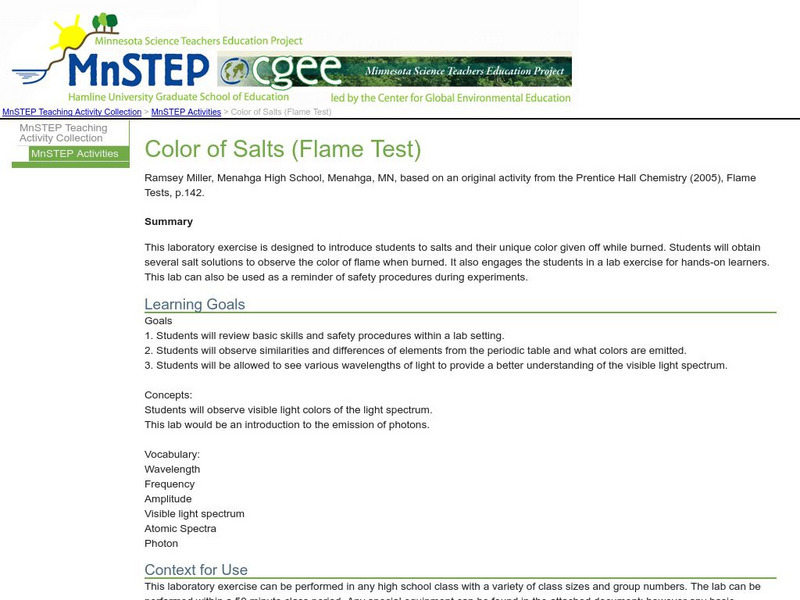Science Education Resource Center at Carleton College
Serc: Consumer Testing and the Scientific Method
Using paper towels, introduce a basic approach to determine which type of paper towel is the most absorbent using the scientific method. Students learn to evaluate properties of paper towels: rate of absorbency, ability to use a wet...
Science Education Resource Center at Carleton College
Serc: A Bug's Life: Under a Rock!
In this classroom biology lab, students will investigate the role or purpose of decomposers.
Science Education Resource Center at Carleton College
Serc: Boyle's Law Investigation Using Marshmallows in a Syringe
This activity is designed to accompany lecture on Boyle's law. Students use manipulatives to demonstrate the principles of Boyle's law then summarize their observations on the accompanying worksheet.
Science Education Resource Center at Carleton College
Serc: Chemical Changes: Reacting an Acid and Base
In this chemistry lab, students will investigate chemical changes that occur when acids and bases react. It is meant to introduce the concepts of chemical changes, gases have mass, conservation of mass, and balancing equations. Students...
Science Education Resource Center at Carleton College
Serc: Conductivity of Water
Students discover that pure water does not conduct electricity and that dissolving different substances in water may or may not cause it to conduct electricity.
Science Education Resource Center at Carleton College
Serc: Determining School Population Using Multiple Student Driven Methods
Students create a logical method to estimate the number of students in their building, collect data, and calculate an estimated student population to better understand wildlife population count methods.
Science Education Resource Center at Carleton College
Serc: "Chemory" the Game
In this classroom activity students will utilize the familiar matching game concept they played as youth to match elements and their symbols, ionic ions into formulas, and learn common ion charges of the most well known elements.
Science Education Resource Center at Carleton College
Serc: Comparing Mechanical Advantage and Efficiency of Pulleys
Students determine the mechanical advantage of three pulley set-ups. Then they measure the work input and output to calculate the efficiency. Finally, students determine the relationship between the mechanical advantage and the...
Science Education Resource Center at Carleton College
Serc: Discovering the Hidden Properties of Magnets
In this lesson, students determine which objects are helpful in determining the location and position of magnets that are hidden inside of closed boxes.
Science Education Resource Center at Carleton College
Serc: Calculating the Declination of the Sun for Elementary Students
In the school courtyard, students will measure the apparent path of the sun across the sky using a toilet plunger. Students will then generate questions as to why the sun appears to move, and what is really happening in the process. We...
Science Education Resource Center at Carleton College
Serc: Comparative Anatomy of Bird vs. Human Leg Bones
This activity is designed for students to compare and contrast the anatomy of bird and human leg bones. Students will kinesthetically model walking like a bird to note the differences in the foot bones.
Science Education Resource Center at Carleton College
Serc: Blowing Up Balloons, Chemically
Learners will understand and apply the Law of Conservation of Matter; balance chemical equations; use the following skills: observing and recording data (observations) and making inferences from observations.
Science Education Resource Center at Carleton College
Serc: "Does It Float?" an Inquiry Based Activity Investigating Buoyancy
This is an inquiry-based activity in which students will need to work together as a class to solve the following problem: they must construct a "boat" entirely out of modeling clay that is capable of supporting 150 grams of cargo without...
Science Education Resource Center at Carleton College
Serc: Conductor or Insulator?
In this investigation the students predict, experiment, and observe whether materials are insulators or conductors.
Science Education Resource Center at Carleton College
Serc: Balloon Cars Revisited: Alternative Fuel Gases
In this activity, students use the common balloon cars they created which use air propelled out of a balloon as a fuel source to investigate how different gases (fuels) effect the travel distance of the balloon cars.
Science Education Resource Center at Carleton College
Serc: Adventures in Abc and 1,2,3
In this outdoor/indoor instructional activity, the students will study Antler, Bear, Canoe by Betsy Bowen and make their own ABC book based on their observation skills used in the school forest.
Science Education Resource Center at Carleton College
Serc: Observing and Creating Sketches of an Outdoor Environment
Students use their senses to observe nature then sketch a plant and/or animal in their science journals using detail and color. Using these sketches, they will create classroom books which are shared with the class.
Science Education Resource Center at Carleton College
Serc: Circular Motion Lab
In this activity students use a homemade circular motion machine to investigate the variables that affect circular motion. The students then graph their data in order to find mathematical relationships between the variables they have...
Science Education Resource Center at Carleton College
Serc: Buoyant Force
In this Physics lab, learners learn about Archimedes' Principle. An object is submerged in water and vegetable oil and the buoyant force and height are measured at different levels. The slope of the graph Buoyant Force vs. Height is the...
Science Education Resource Center at Carleton College
Serc: Color of Salts Flame Test
This laboratory exercise is designed to introduce students to salts and their unique color given off while burned. Students will obtain several salt solutions to observe the color of flame when burned.
Science Education Resource Center at Carleton College
Serc: Changes in a Monarch's Life Cycle
Young scholars will observe and work with monarch larva. Once they have experienced the life cycle we will go outside to observe milkweed and identify the stages of monarch that are seen on the plant. Back inside the classroom we will...
Science Education Resource Center at Carleton College
Serc: Birds: How Do We Increase the Bird Population at Our School?
This is a lesson plan of how to improve our environment as well as how to enjoy it. The learners will sit in the schoolyard, study pictures of birds and then compile similarities and differences. Students will observe live birds in the...
Science Education Resource Center at Carleton College
Serc: Cloud Inquiry Investigation & Id
Students describe and create an experiment to indicate that a cloud will form under specific conditions.
Science Education Resource Center at Carleton College
Serc: Analyzing the Motion of a Marble Down a Ramp
This lab activity involves rolling a marble down a ramp where the students can investigate constant acceleration motion. The students then make a position vs. time graph and a velocity vs. time graph in order to investigate the change in...


